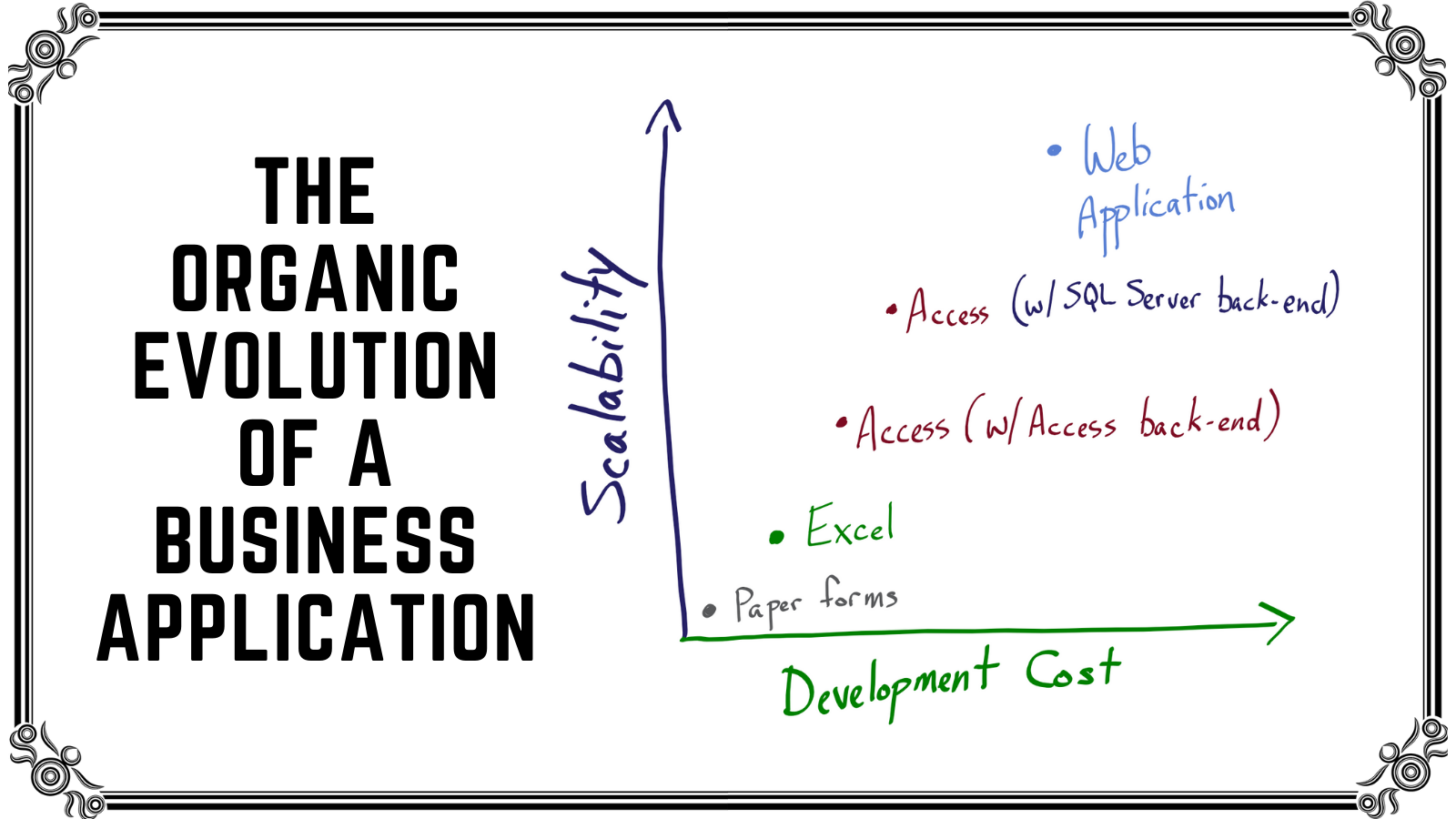Evolution of a Business Application
Before you commission that custom web application project, it pays to validate that the business process even warrants such a significant investment.

Proof of Concept
One of the most powerful ways to minimize risk when introducing something new into the world is to first prove the concept. The best way to do that is with a minimum viable product (MVP).
MVPs are all the rage in the software development world. But most developers think only about an MVP in the context of their particular software tool. Mobile developers build a working prototype of an iPhone app; web developers build a minimally functional website; etc.
But while it's cheaper to build a prototype than a finished product within a given platform, not all platforms share the same baseline development costs. In some cases, it may be cheaper to build a finished product in one platform than a prototype in another.
Automating a Business Process One MVP at a Time
Most business applications begin their lives as a repetitive business process. And most business processes are first implemented on paper. For lots of unusual and infrequent business processes, there's never a need to scale beyond paper forms.
When the paper gets overwhelming, the next step in the automation process is usually for someone in the office to fire up Excel and throw together a workbook to manage the data. This costs relatively little and almost always has immediate and tremendous ROI (return on investment).
Again, many business processes live long lives as Excel workbooks. But a few of those Excel workbooks get overworked. When the same workbook starts getting shared among multiple employees or multiple departments, that's a sure sign you have hit the limits of Excel's ability to scale.
The natural progression from Excel is to move into an Access application. Access applications involve greater development costs, but they offer much better scalability than Excel. And, for not much more in development costs, you can get vastly increased scalability by storing the back-end data in SQL Server (including the free option, SQL Server Express).
If the process continues to grow to the point that Access can no longer support it, then it has truly proven its importance to the business. At that point, you no longer have to worry about sinking a large sum of money into a process that may not even be that important.
External references


